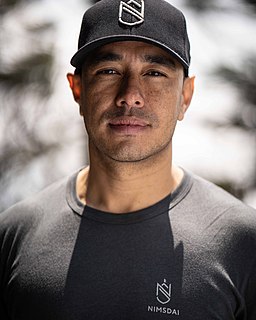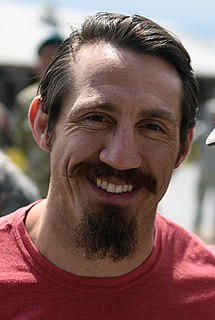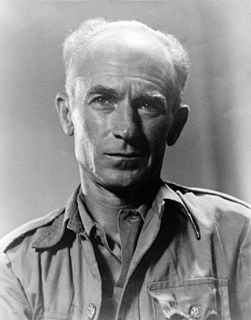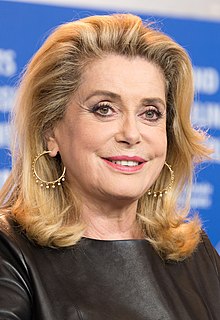A Quote by Ant Middleton
I joined the Marines, passed Special Forces selection, and became a young leader in the military.
Related Quotes
Things can change if the military can do a paradigm shift and gets out of the shame and coverup cycle and be a leader in our culture. In the 50s, 60s and 70s there were huge race problems in the military even more severe than the culture at large. The military saw it was detrimental and it changed and became a model to society at large.
(Carmine Crocco) A farm-labourer and cowherd, had joined the Bourbon army, killed a comrade in a brawl, deserted and lived as an outlaw for ten years. He joined the liberal insurgents in 1860 in the hope of an amnesty for his past offences, and subsequently became the most formidable guerilla chief and leader of men on the Bourbon side.
When I joined the Marines, I went to Quantico for training. One of the first things I learned is that you can drop out of a run, a couple runs. You can fail the test or a couple tests in a row, and they'd give you a second try. But if you lied about anything, you were gone that afternoon. That's how important integrity is in the military.
A complete theory of evolution must acknowledge a balance between "external" forces of environment imposing selection for local adaptation and "internal" forces representing constraints of inheritance and development. Vavilov placed too much emphasis on internal constraints and downgraded the power of selection. But Western Darwinians have erred equally in practically ignoring (while acknowledging in theory) the limits placed on selection by structure and development what Vavilov and the older biologists would have called "laws of form.
Marines have a cynical approach to war. They believe in three things; liberty, payday and that when two Marines are together in a fight, one is being wasted. Being a minority group militarily, they are proud and sensitive in their dealings with other military organizations. A Marine's concept of a perfect battle is to have other Marines on the right and left flanks, Marine aircraft overhead and Marine artillery and naval gunfire backing them up.
I think I will always feel a special relationship with The Umbrellas of Cherbourg, because for me it was something very, very special. It was a modern opera, and to play the heroine in a film that became such a success at a young age, and learning from him when I was so young and impressionable - really it was one of my most important experiences.
The general's staff is a handpicked collection of killers, spies, geniuses, patriots, political operators and outright maniacs. There's a former head of British Special Forces, two Navy Seals, an Afghan Special Forces commando, a lawyer, two fighter pilots and at least two dozen combat veterans and counterinsurgency experts. They jokingly refer to themselves as Team America, taking the name from the South Park-esque sendup of military cluelessness, and they pride themselves on their can-do attitude and their disdain for authority.




































